
Boss Tells Employee ‘Absolutely No Overtime’, Regrets It When He Maliciously Complies
When our supervisors and managers implement new policies at work, we are usually expected to smile and begin following the rules without asking any questions. Management assumes they know best, so why would they listen to their simple employees, right? Well, as one company recently found out, sometimes having workers blindly follow rules can lead to a huge mess, or a massive loss in profits.
Below, you’ll find a story that Reddit user Tbross11 recently shared on the Malicious Compliance subreddit detailing how he cost his company hundreds of thousands of dollars by simply obeying the rules. Enjoy reading this tale, as well as some of the replies the post received, and then feel free to share your own thoughts in the comments below. Have you ever taught your managers a lesson by maliciously complying to their policies? If so, we’d love to hear about it, and then if you’re interested in reading another Bored Panda article featuring an employee following company policy to the detriment of their boss, look no further than right here.
This employee caused a huge loss in profits at his company, simply by following a strict “no overtime” policy enacted by management
Image credits: Glenn Carstens-Peters (not the actual photo)
Image credits: Jordan Harrison (not the actual photo)
Image credits: tbross11
Most of us don’t want to work overtime if we don’t have to. 40 hours a week is plenty, and we want to be able to enjoy our personal lives, nurture our relationships and spend quality time with our families. But overtime is typically not a regular component of most of our jobs; it’s a tool that can be used when necessary and allows workers to earn at least 50% more during those hours. According to the Society for Human Resource Management, the four main reasons for using overtime are to have 24/7 coverage of a position, to account for workload fluctuations, staff variations and labor market considerations.
In general, however, overtime has a negative connotation. As Timely notes on their site, there are various problems that can arise with employees having to work overtime including: having an overstretched workforce, poor project estimation or time management, unrealistic client expectations, communication breakdown, and toxic company culture. In the case of this story on Reddit, management was not trying to take advantage of their employees by forcing them to work overtime, which can easily become an issue in many workplaces, but they were still treating their employees poorly.
By forcing a small number of employees to complete a great amount of work all within a strict window of time, these supervisors were adding stress and impossible expectations to their workers’ shifts. In this case, working overtime would have actually been beneficial. I’m sure the staff members would not have wanted to be away from their families any longer than necessary, but a few hours of overtime here and there, where you get to earn “time and a half” or “double time” can be a great perk. Plus, this allows employees to complete their tasks to the best of their abilities, rather than leaving their colleagues and supervisors scrambling when their job is left unfinished at the end of the day.
Managers have to understand exactly what their employees are capable of completing during their working hours, and if overtime is necessary to keep the ship up and running smoothly, they must be willing to compensate their employees accordingly. I’m sure TBross11’s supervisors learned their lesson and are rethinking their “no overtime” policy now, but the whole issue could have been prevented in the first place. We would love to hear your thoughts on this situation down below, and if you have ever maliciously complied to your employers’ requests, feel free to share those stories with your fellow pandas as well.
Many readers responded calling out the worker’s incompetent managers, while some even shared similar stories of their own
In cases where management fails to consider the broader implications of policy changes, the consequences can be financially disastrous, as seen in a similar cost-cutting attempt by another company.
When decisions like eliminating overtime or removing essential resources are made without foresight, it often leads to unexpected expenses and operational inefficiencies.
If you own a business and the bottom line is yours then by all means stay and work. If you hold any other position other than ‘enjoying the profits’ then unpaid time is handing dollars or whatever currency to the owner / shareholder. You own your time, it is more valuable than their profits, you don’t give it away to any business. I had a team of workers who regularly took a late start on a Monday or an early finish on a Friday, our job was very flexible. We had give and take but no one ever went under or over their 37.5 hour week. They enjoyed a longer weekend, I scheduled their work to match. If they went over 37.5 then I’d always pay O/T they were worth every penny, we were delivering a multi-million pound contract. They were happy, I was happy, we made bonus every quarter and sick days were pretty much non-existent. Weird how paying what folk are worth gets positive results eh? We were also staffed to cover PTO, sick and vehicles being serviced, we worked for a responsible company.
Reminds me a bit of a former boss. I'm a train driver and we have quite special schedules that take quite a bit of planning to make. They are very specific and to avoid a huge hassle we do not mess with things unless absolutely necessary. Here in Sweden many parents of young children don't work full time, instead they go down in time. So working 80% isn't uncommon. The way this was handled was to take away some days to tally up to the 20% less work, on more normal jobs they'd instead often work 20% less each day, depending on job and boss ofc. So our new boss decided we should be like everyone else and not get "extra" days off and instead work the percentages each day. That's a bit hard with trains, like are you supposed to step off in the middle of the woods? Suffice it to say it was immediately shut down but we still heard some whining about people getting "extra" days off.
If you own a business and the bottom line is yours then by all means stay and work. If you hold any other position other than ‘enjoying the profits’ then unpaid time is handing dollars or whatever currency to the owner / shareholder. You own your time, it is more valuable than their profits, you don’t give it away to any business. I had a team of workers who regularly took a late start on a Monday or an early finish on a Friday, our job was very flexible. We had give and take but no one ever went under or over their 37.5 hour week. They enjoyed a longer weekend, I scheduled their work to match. If they went over 37.5 then I’d always pay O/T they were worth every penny, we were delivering a multi-million pound contract. They were happy, I was happy, we made bonus every quarter and sick days were pretty much non-existent. Weird how paying what folk are worth gets positive results eh? We were also staffed to cover PTO, sick and vehicles being serviced, we worked for a responsible company.
Reminds me a bit of a former boss. I'm a train driver and we have quite special schedules that take quite a bit of planning to make. They are very specific and to avoid a huge hassle we do not mess with things unless absolutely necessary. Here in Sweden many parents of young children don't work full time, instead they go down in time. So working 80% isn't uncommon. The way this was handled was to take away some days to tally up to the 20% less work, on more normal jobs they'd instead often work 20% less each day, depending on job and boss ofc. So our new boss decided we should be like everyone else and not get "extra" days off and instead work the percentages each day. That's a bit hard with trains, like are you supposed to step off in the middle of the woods? Suffice it to say it was immediately shut down but we still heard some whining about people getting "extra" days off.

 Dark Mode
Dark Mode 

 No fees, cancel anytime
No fees, cancel anytime 




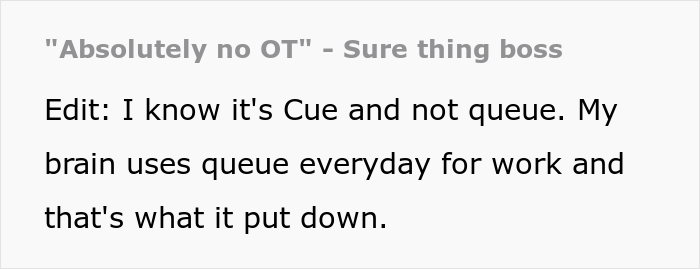
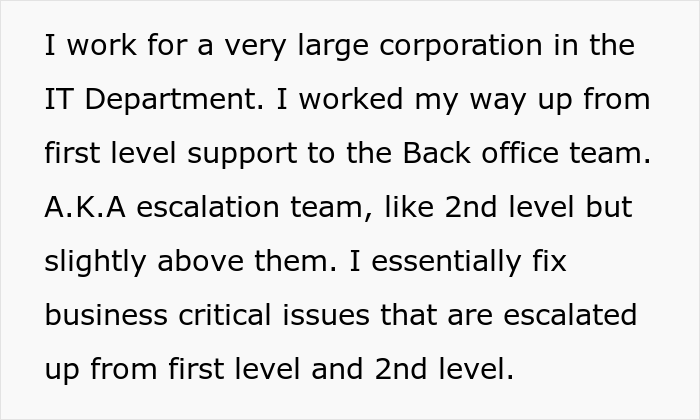
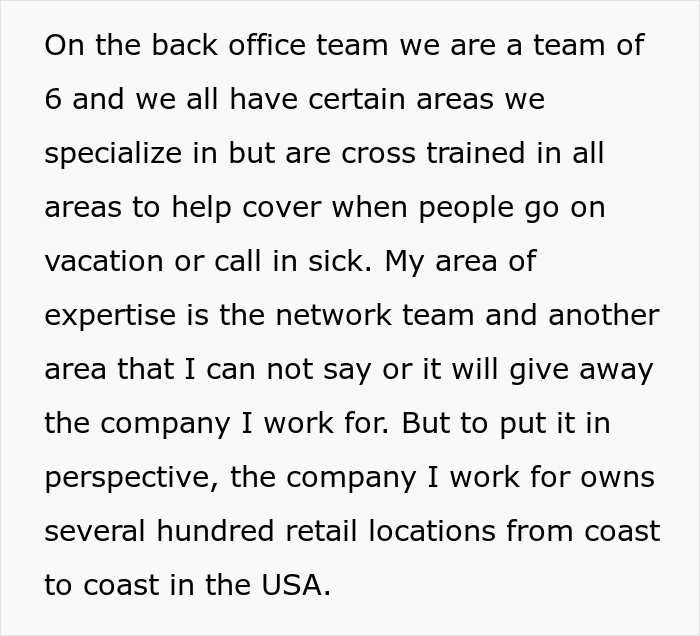
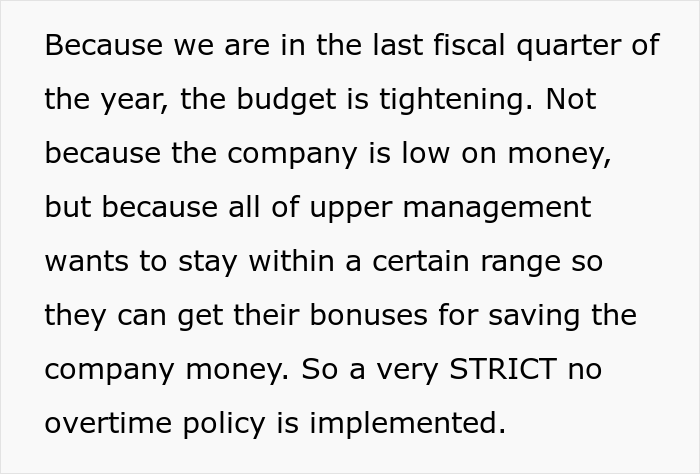
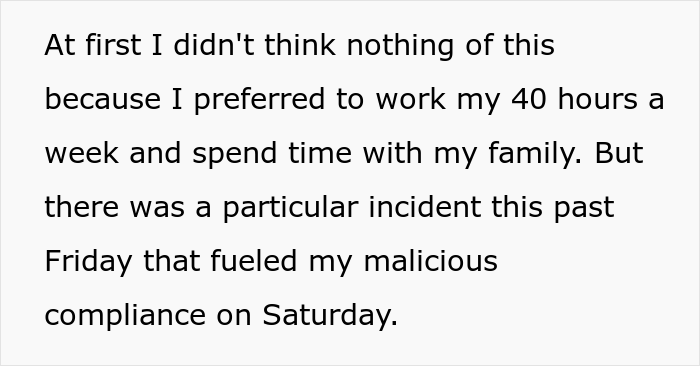
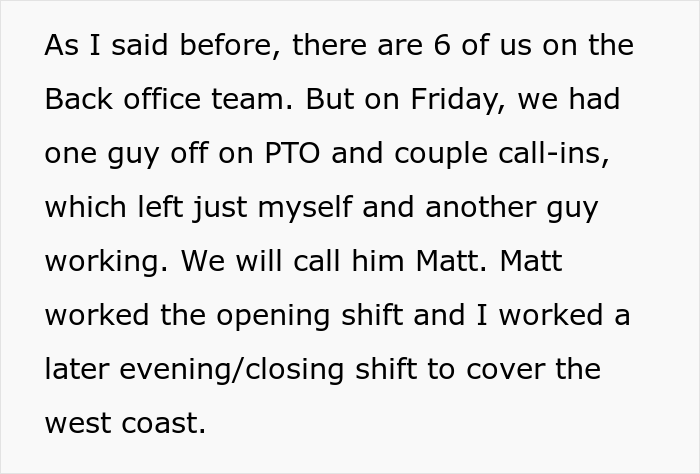
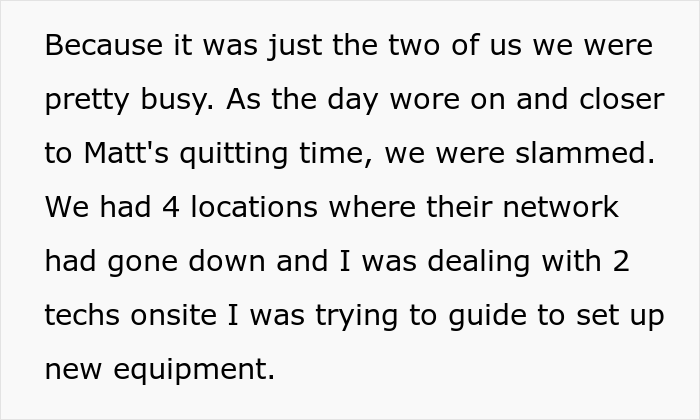
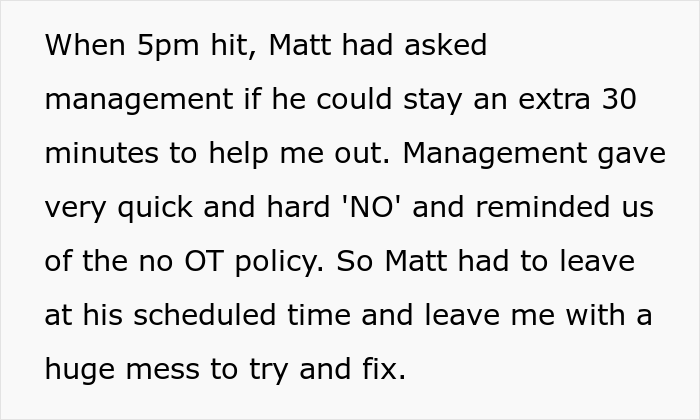
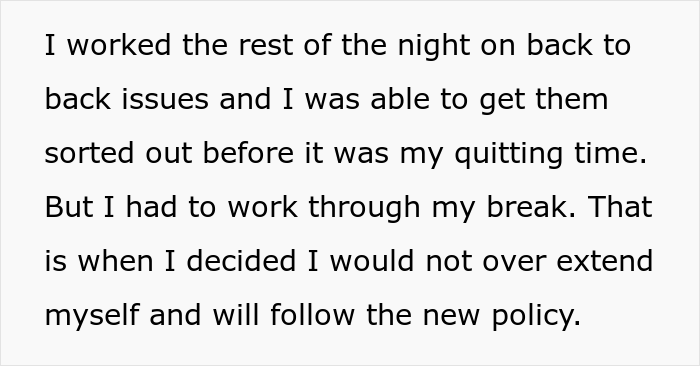
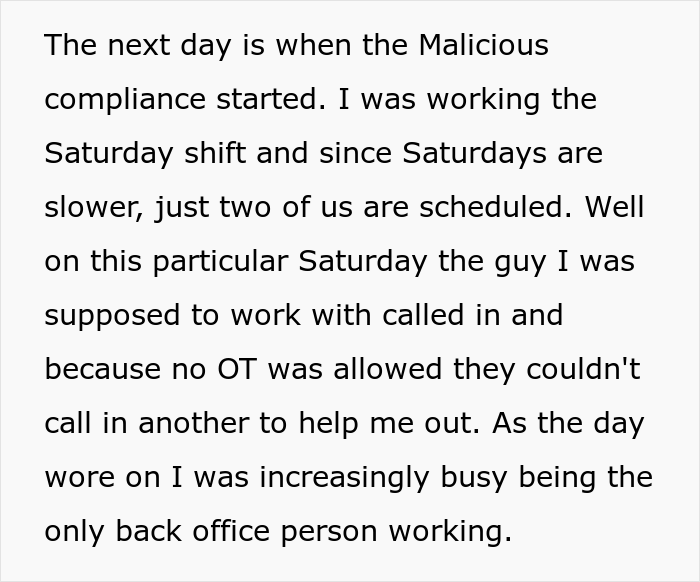

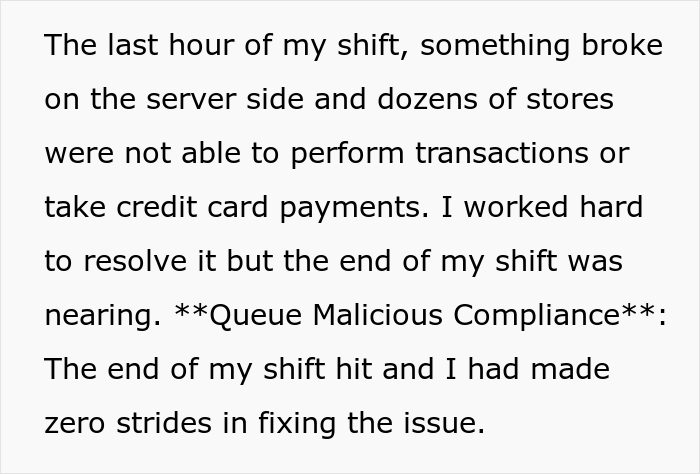
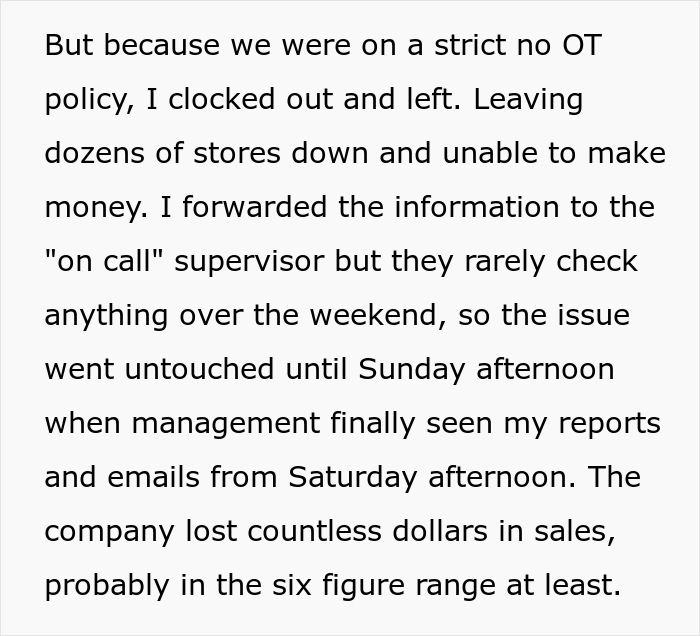
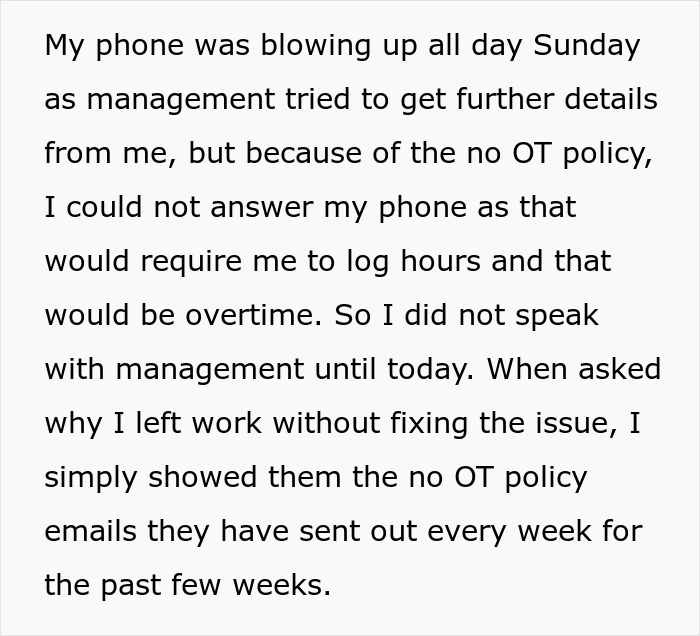
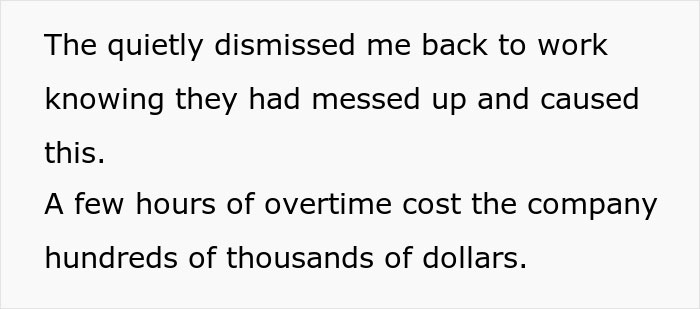
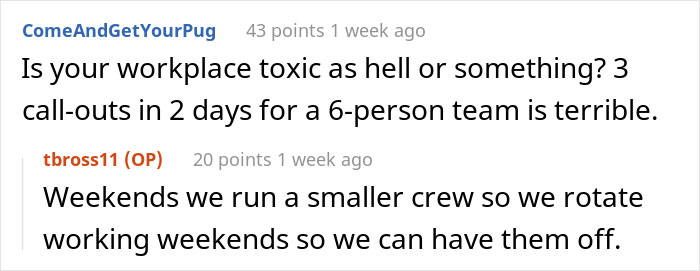



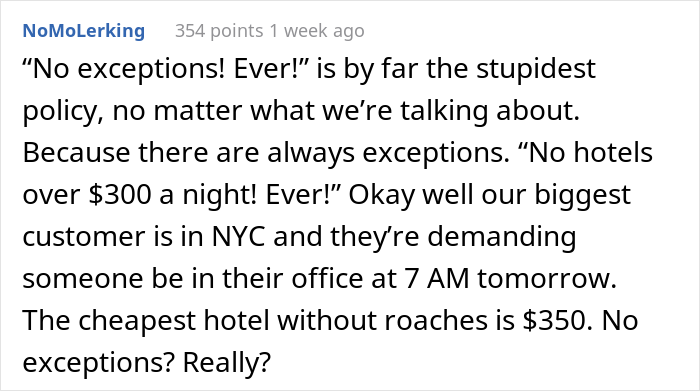

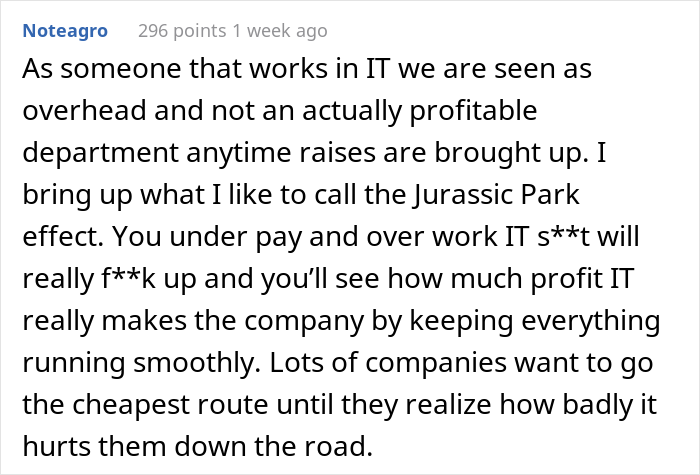
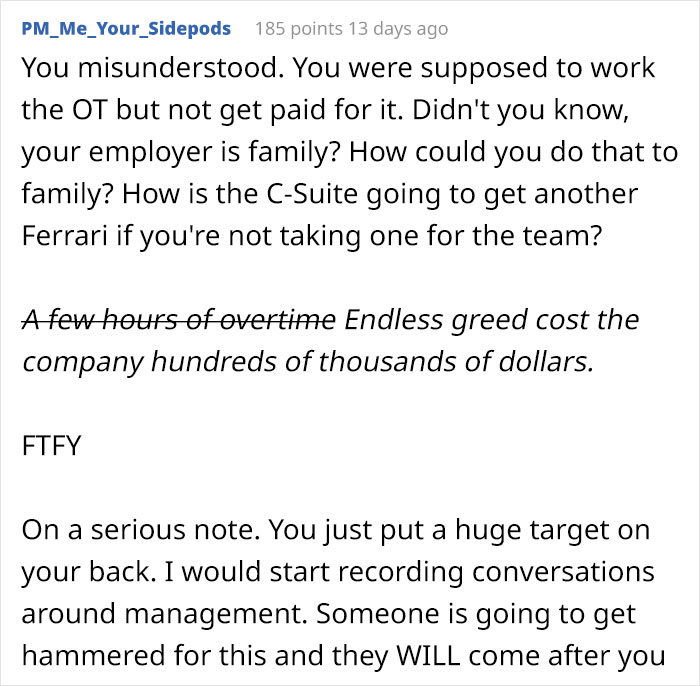

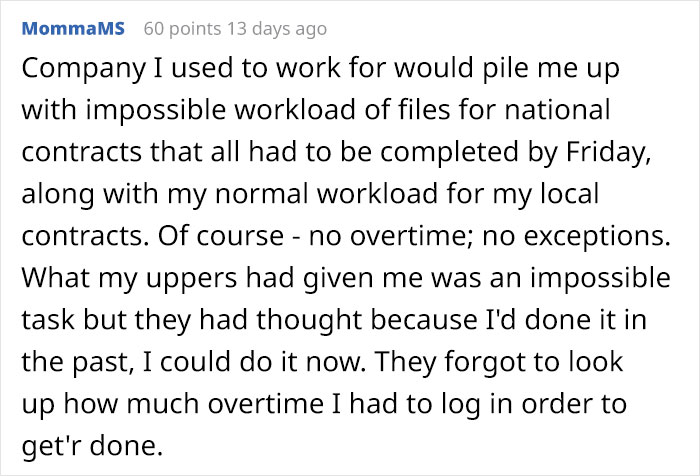
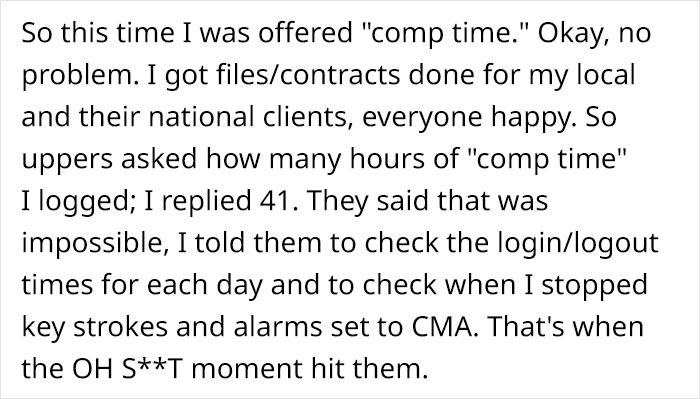
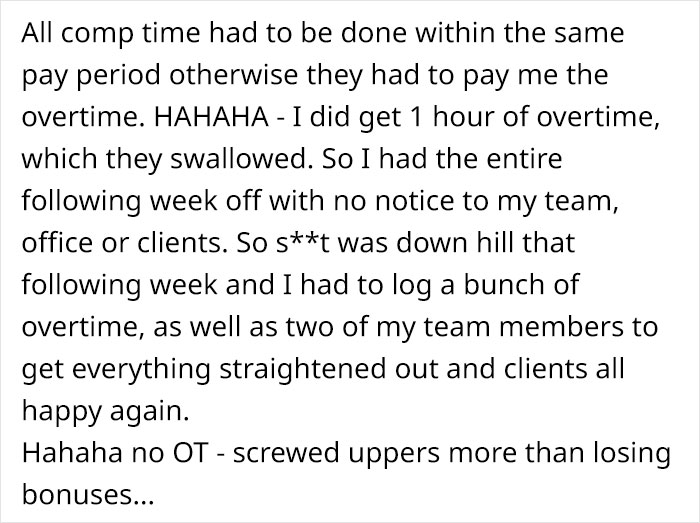


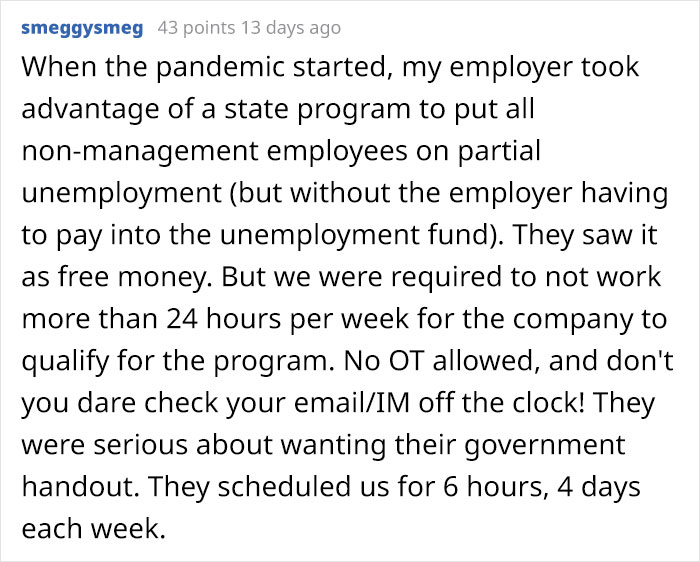
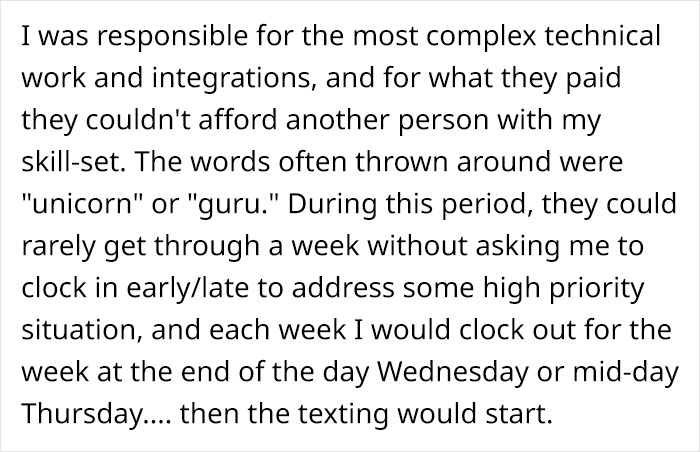

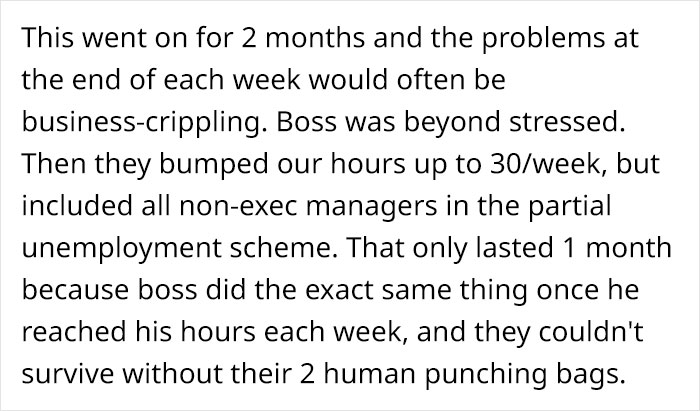













































73
11